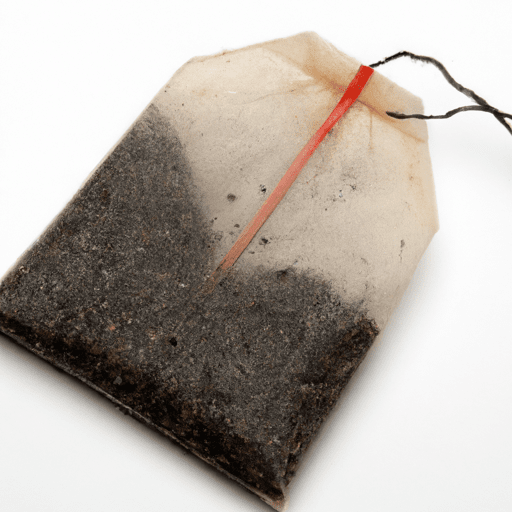Exploring the Versatility of Black Tea Bags in Cooking
When you think about tea, the image of a steaming cup infused with soothing flavors might immediately come to mind. But did you know that black tea bags can also be a surprising secret weapon in the kitchen? Beyond being a beloved beverage, black tea bags can elevate your culinary creations with their distinct taste and versatility. In this blog post, we’ll delve into the world of black tea bags and how they can add depth and flavor to your cooking endeavors.
The Alluring Taste of Black Tea
Black tea stands out from its counterparts due to its robust and full-bodied flavor profile. Known for its rich and malty taste, it brings a unique depth to both sweet and savory dishes. When used in cooking, black tea bags infuse the ingredients with a subtle bitterness and a delightful hint of tannins, helping to balance and enhance the overall taste.
Common Uses in Cooking
Marinades and Brines
Black tea bags can work wonders in marinades and brines, lending their distinctive flavor to meats, tofu, and vegetables. The tannins in black tea help tenderize the proteins while infusing an irresistible taste. Consider using black tea bags as an ingredient in marinades for chicken or pork, adding a touch of complexity to your dishes.
Poaching Liquids
Expanding your culinary horizons to include poaching with black tea bags can lead to delightful results. The gentle simmering of fish or fruit in a flavorful broth infused with black tea can create a delicate infusion. Imagine tender poached salmon or pears infused with the earthy, slightly smoky aroma of black tea – a true feast for the senses.
Baking Adventures
Black tea can be a game-changer in your baking repertoire. Incorporate the taste of black tea bags into cakes, cookies, waffles, or even ice creams, giving your sweet treats an unexpected twist. From a classic Earl Grey-infused pound cake to the comforting aroma of chai-spiced cookies, black tea bags add complexity and a touch of elegance to your desserts.
The Nutritional Value of Black Tea
In addition to its undeniable culinary allure, black tea offers several potential health benefits. While the specific nutritional value may vary depending on the brand and brewing methods, black tea is generally rich in antioxidants and polyphenols, which may have positive effects on heart health and reducing inflammation. However, it’s important to note that the concentration of these compounds can be influenced by factors such as brewing time and water temperature.
Fun Facts and History
Before black tea bags came into existence, loose-leaf tea was the norm. However, in the early 1900s, Thomas Sullivan, a New York tea merchant, accidentally popularized tea bags. Initially intended as sample packaging, his customers began steeping the tea directly without removing it from the bags. Realizing the convenience, the concept caught on, and tea bags became a staple in households worldwide.
Try Something New Today
Next time you find yourself reaching for that inviting box of black tea bags, consider exploring their potential beyond the teacup. With their flavorful profile and versatility, black tea bags can infuse your cooking with a touch of sophistication and excitement. Whether it’s tenderizing meats, adding depth to desserts, or embarking on a culinary adventure, black tea bags are a delightful addition to any kitchen. So go ahead, experiment, and savor the fascinating possibilities that black tea bags have to offer!
“Tea is much more than a mere drink; it’s an invitation to linger, share, and create.”
Origin of Black Tea:
- Black tea is believed to have originated in China in the 17th century during the Ming Dynasty.
- The Chinese have been consuming tea for thousands of years, but black tea specifically is a relatively recent creation in comparison to other types of tea such as green tea and oolong tea.
Common Uses of Black Tea:
- Black tea is commonly consumed as a beverage and is enjoyed by many people worldwide for its unique flavors and aromas.
- It is often served hot, but it can also be used to make iced tea, which is a popular refreshing drink, especially during the summer months.
- Black tea is also utilized in various culinary preparations, such as in marinades, sauces, and desserts, to infuse its distinct flavor.
Nutritional Benefits of Black Tea:
- Black tea contains numerous polyphenols, which are beneficial plant compounds that act as antioxidants in the body.
- These antioxidants may help protect the body against cell damage caused by free radicals.
- Black tea also contains caffeine, although its levels are generally lower than in coffee. It can provide a mild stimulant effect to help with alertness and concentration.
- Additionally, black tea contains small amounts of vitamins and minerals, such as potassium and vitamin B2 (riboflavin).
Unique Properties and Historical Significance:
- One unique property of black tea is its oxidation process. After the tea leaves are harvested, they undergo a process called oxidation, where they are exposed to air, causing the leaves to darken.
- Black tea has a stronger flavor compared to other types of tea due to its higher level of oxidation.
- Historically, black tea played a significant role in trade and cultural exchanges. It became a popular commodity among European nations during the 17th and 18th centuries, leading to the establishment of large-scale tea plantations, particularly in British colonies such as India and Ceylon (now Sri Lanka).
- Black tea has also been associated with various cultural traditions and ceremonies. For example, in the United Kingdom, the tradition of afternoon tea, often with black tea, has been a part of British culture for centuries.




Use the share button below if you liked it.
It makes me smile, when I see it.